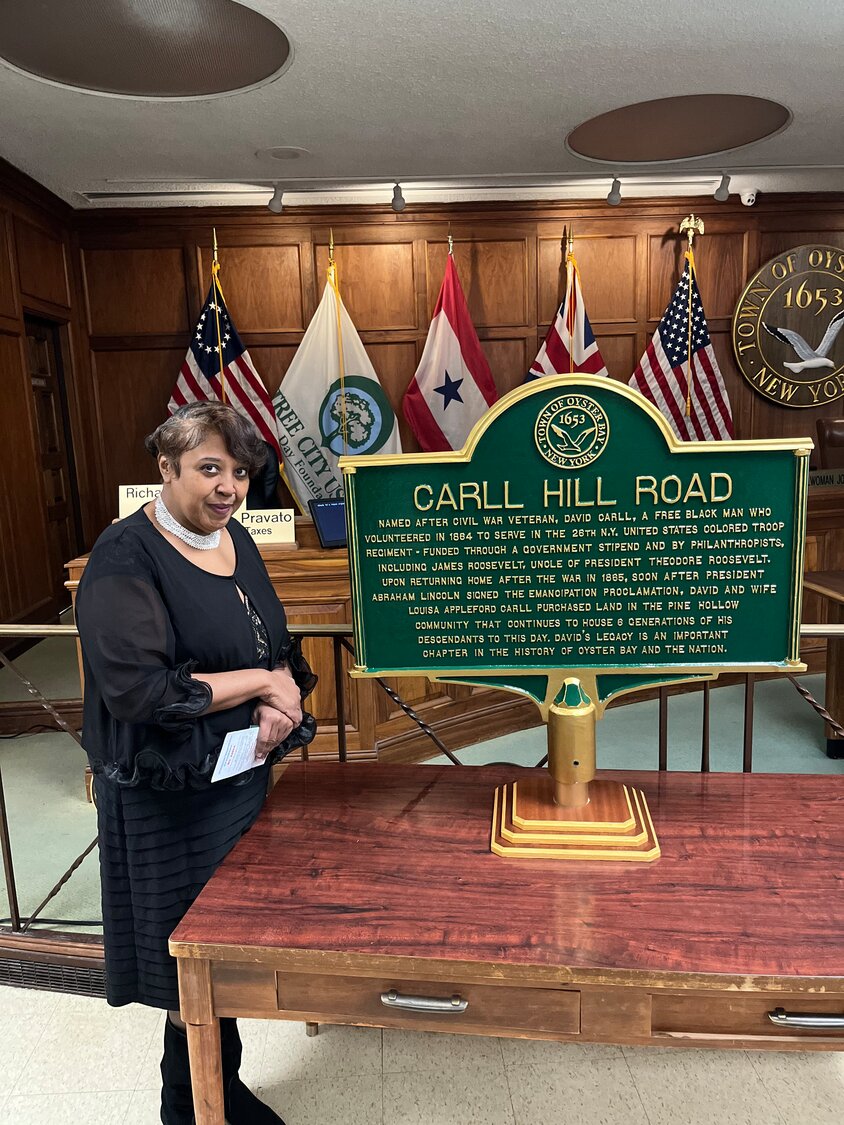Celebrating Black history in Oyster Bay
Oyster Bay Town Hall saw dozens come to honor Black History Month on Feb. 22 as the town government hosted its celebration of the lives and histories of the extraordinary African-Americans in Oyster Bay and Nassau County. Attendees got the chance to learn about Black history, look at relics from a private collection, and celebrate the announcement of a new memorial plaque in honor of David Carll, a Civil War veteran who was a leader in Oyster Bay’s Black community in the late 1800’s.
Town Supervisor Joe Saladino welcomed attendees, consisting of local politicians, educators, community leaders, and residents of all backgrounds. Saladino added that supporting and remembering Black history was an integral part of celebrating broader American history, describing it as part of the “mosaic” of the past.
“This town has the most diversity of any community in Nassau County,” Saladino said. “Events like this celebration help connect us all with a greater understanding and appreciation for all of the cultures that we have to offer.”
Sitting proudly on the dais in town hall was the new plaque which will honor Carll, a freeman originally from Cold Spring Harbor who at 18 joined the 26th regiment of the U.S. Colored Troops and went on to become a prominent landowner in the area. The plaque will serve to call attention to Carll Hill Road, located off of Pine Hollow Road, and is the street where Carll settled with his family after the war, and where his house still stands and his descendants still live.
Among the speakers at the event was one of those descendants, who gave the gathered crowd a brief history of her famous relative. Denice Evans-Sheppard, the director of the Oyster Bay Historical Society and Carll’s great-great-granddaughter, explained the struggles and successes Carll and his family faced in the 1800’s.
A particularly trying challenge that Evans-Sheppard discussed was the discrimination the family faced because Carll’s wife, Mary Louise Appleford, was white. Ultimately the couple had to be buried in separate graves due to laws at the time, and are still apart from each other despite the efforts of their descendants.
Despite this, Evans-Sheppard did highlight the successes of Carll and his several of his sons, including Joseph, his youngest son, who worked as a printer and editor for the Oyster Bay Pilot, where he would frequently interview President Theodore Roosevelt at “the summer White House” at Sagamore Hill. Another son, Francis, ran a profitable garbage collection business in the years before the town had its own system.
While the Black population of Oyster Bay has shrunk from 17 percent to roughly 0.3 percent according to Evans-Sheppard, the important history and legacy of Carll and people like him.
“As the years went on, many other peoples came into the community like the Italians and the Polish, and they all worked together,” Evans-Sheppard said. “They needed a community. They needed to work together.”

 44.0°,
Mostly Cloudy
44.0°,
Mostly Cloudy 





